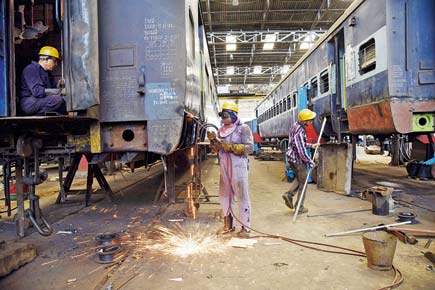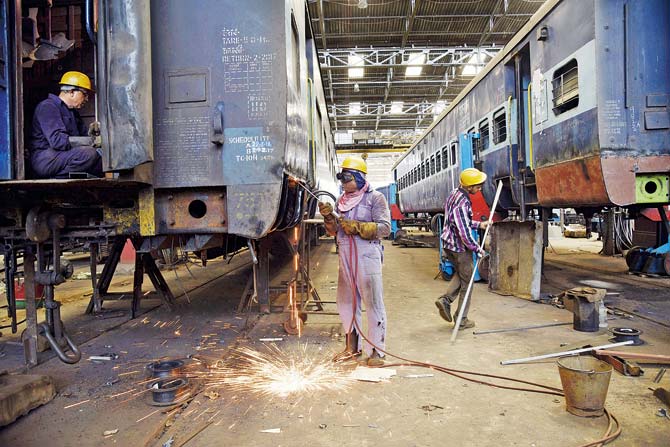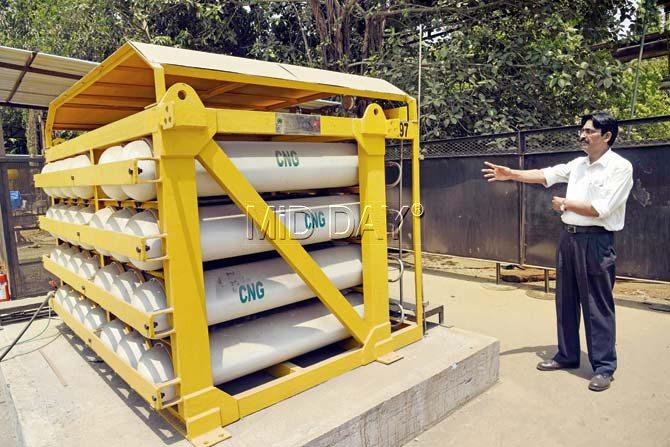The 102-year-old workshop has become the first establishment of the Indian Railways to adopt natural gas for its operations


Every month workers at the coach cutting department repair coaches using CNG
The Central Railway's Matunga Carriage Workshop, spread across 35 hectares, has taken a step in the direction of cleaner fuel by adopting CNG. The 102-year-old establishment is the first zonal workshop of the Indian Railways to adopt natural gas for its operations. "It's been a little over a month since we started using CNG for coach cutting operations. While earlier all the heavily corroded metal would be cut using LPG and acetylene, natural gas is proving to be a cleaner, safer and cheaper fuel," said Mahesh Kumar, Chief Workshop Manager (Matunga), adding that it has cut expenditure by 30 per cent. While the per cubic metre cost for CNG is Rs 37, it was Rs 70 per cubic metre for LPG.

Pramod Kumar Rai, a senior section engineer, points to a gasket, a natural gas pipeline grid. It will be replaced by a pipeline once that is set up. Pic/Pradeep Dhivar
Currently, the fuel is being supplied by the Mahanagar Gas Limited through a gasket, a natural gas pipeline grid. It will be replaced by a pipeline once that is set up. While the use of natural gas is currently restricted to the coach cutting department, Kumar, said they plan to extend it in phases to other departments such as EMU coaches (local trains), trolley mainline and even the canteen. Every month they repair 28-30 corroded coaches using CNG. "The MGL carried out several trials for nearly seven months to gauge the efficacy of the fuel. The idea was to test its feasibility here before implementing it at other workshops," he said, adding that the Kota Railway Division will be next to implement the plan. The initiative to go green was taken by the Indian Railway's Alternate Fuel Organisation based out of Delhi, who launched the pilot project with the Matunga workshop, which is the oldest in the Indian Railways.
According to Kumar, it is the logistics of the project that makes it cumbersome. "The only reason it took this long to implement it is because of the paperwork involved in this and the laying of pipeline which takes a long time," he said. The laying of the pipeline will begin soon after the monsoon.
Pramod Kumar Rai, a senior section engineer, said that while the initial heating time with natural gas is more than that of LGP. "However, if we are talking about performance, it's as good as LPG," he added. The present CNG consumption per day at the Matunga workshop is 16 Standard Cubic Meters (SM3).
According to Rai, even the workers are feeling more energetic with the switch. "Earlier, due to the inhalation of smoke, they would feel extremely exhausted, but now they feel fresher."
 Subscribe today by clicking the link and stay updated with the latest news!" Click here!
Subscribe today by clicking the link and stay updated with the latest news!" Click here!









